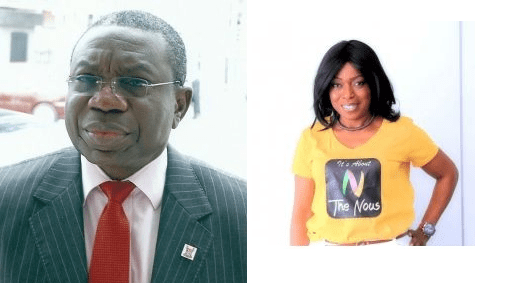
Seasoned psychiatrists and mental health practitioners have cautioned journalists and citizens against sensationalising of suicide in the media, stating that it could lead to more suicidal behaviour in the country.
This is even as the World Health Organisation (WHO) recently released suicide prevention comprehensive guideline to help countries improve suicide prevention and care.
The mental health practitioners said studies have found that the way journalists craft words when reporting suicide can either save lives or cause more suicide cases, as the media has been identified as a tool for more suicide incidences.
This was not limited to the use of conventional media alone, as social media bullying was also listed as one of the causes of suicide.
The experts who spoke at the media training on responsible suicide reporting, jointly organised by Health Writers Association of Nigeria (HEWAN); The NOUS Foundation Nigeria; and Healthcare Retreat recently, included Dr Femi Olugbile, a consultant psychiatrist; Ms Lade Olugbemi, mental health advocate and CEO, NOUS Foundation Nigeria; Dr Olufemi Oluwatayo, consultant psychiatrist; and Martins Ifijeh, PhD student, Rutgers School of Public Health.
Speaking at the workshop, Dr Olugbile, described suicide as a mental health condition, saying it is directly linked to depression, anxiety, panic disorder and others in the same range.
He asserted that more than 90 per cent of people who died by suicide suffer from an associated physical or mental health condition, such as chronic physical illnesses, especially those associated with pain, suicidal thinking and incidents of ‘completed’ suicide.
“We cannot – and must not – ignore suicide,” said Dr Tedros Adhanom Ghebreyesus, Director-General of the World Health Organization. “Each one is a tragedy. Our attention to suicide prevention is even more important now, after many months living with the COVID-19 pandemic, with many of the risk factors for suicide ̶ job loss, financial stress and social isolation – still very much present. The new guidance that WHO is releasing provides a clear path for stepping up suicide prevention efforts”, he disclosed.
Tagged Live Life approach, the apex health body highlighted four principles to implement the guideline, which are: limiting access to the means of suicide, such as highly hazardous pesticides and firearms; educating the media on responsible reporting of suicide; fostering socio-emotional life skills in adolescents; and early identification, assessment, management and follow-up of anyone affected by suicidal thoughts and behaviour.
Olugbile who hinted on the incidence of suicide in the world, said about 800,000 suicide deaths occur annually, while prevalence rate in Nigeria is 6.9 per 100,000 population per year. He said for this ugly scenario to be reversed, every citizen and the media have got crucial roles to play. He particularly stressed the role of journalists, as men of the Fourth Estate of the Realm in shaping public perceptions about suicide.
Olugbile, a former permanent secretary, Lagos Ministry of Health, said there is need for a change in suicide reportage and this can only come through capacity building which can be transfer into every day reporting.
“Given our collective antecedents, that modern humane society will not just happen, it will have to be built and lovingly moulded. Every citizen has a role to play. The Press, as the Fourth Estate of the Realm, have a vital role in educating the citizenry, and shaping public perceptions concerning Suicide and other mental health issues.
“The first requirement is that they acquire KNOWLEDGE, which will inform their actions as they carry out their duties. It is only in the context of such an up-to-date knowledge-base that the journalist may purge himself of his innate prejudice, and it is only then that the actions prescribed in ‘THE MORNING AFTER’ may become meaningful.
“The new way of understanding and dealing with the subject needs to be seen as not only reasonable but necessary. In carrying out such an exercise of self-improvement, we may get the satisfaction of knowing that we are playing our own part in creating a humane society run on knowledge and best-practice”, he urged.
Corroborating Olugbile’s view, Ms Lade Olugbemi, CEO, NOUS Foundation Nigeria harped on the need for pressmen to embrace responsible social reporting in their daily coverage of suicide incidences, noting that this is one of the surest means of mitigating increase in suicide cases and reducing copycat effects.
Olugbemi, a mental health advocate, committed to mental health advocacy in the ethnic minority communities, said suicide is one of the top leading causes of death worldwide and It is one of the top five causes of death in adolescents. It has been identified not only as an individual phenomenon, but also as being influenced by social and environmental factors. There is increasing evidence that the Internet and social media can influence suicide-related behaviour.
“We are asking that journalist to use the RSR, in the process of producing stories, journalists should be more aware of critical risk factors like; “Levels of stigmatisation, copycat effects, and harmful speculation “she remarked.
Going forward, she recommended the formulation of legislative instruments such as National Suicide Prevention Strategy and Coroners Act, while organised unions like Nigerian Union of Journalists, Health Writers Association of Nigeria, can set standard on suicide reporting in line with the WHO guideline.










